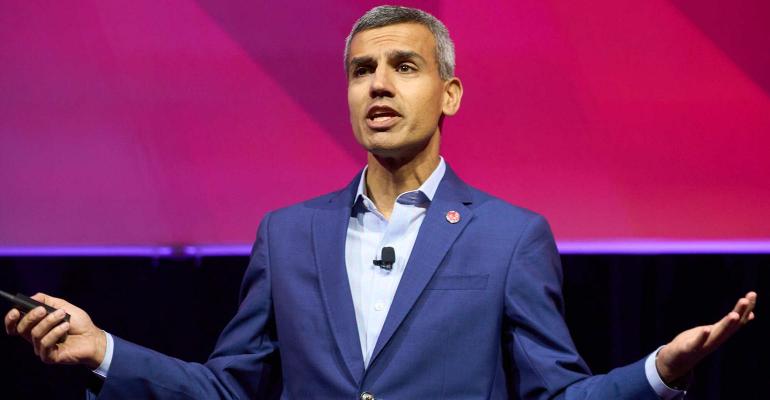The average retail investor is skewing younger and younger. In fact, the cohort of investors between the ages of 25 and 34 years old now holds the top spot in share of site visitors to Morningstar.com, and the company is seeing meaningful year-over-year increases in visits among the 18- to 24-year-old age group, according to Kunal Kapoor, CEO of Morningstar, speaking at the firm's investment conference this week.
These are the types of investors that will power advisors’ practices in 10 to 15 years, and the concept of active personalization, which blends traditional approaches with more modern ones, will become more important to these investors, he said.
“Active personalization is the new active investing,” Kapoor said.
Kapoor outlined the ways Morningstar is helping advisors serve their clients in a personalized, scalable way. The company is looking at active personalization through the lenses of returns, risk and sustainability.
Personalization starts with winning investment strategies, and this is becoming increasingly important because the number of products available to the advisor market is growing by about 11% per year. If that continues at the same pace, Morningstar projects that the number of managed products that advisors will have to choose from will reach over 1 million in the next five years.
“You'll have a million products potentially that you'll be sorting through for your clients in the next five years,” he said. “So we're using the best of our analyst expertise and machine learning to begin to scale our ratings coverage without sacrificing that quality that I showed you earlier. Today, our analysts are rating more than 4,000 funds and our quantitative model covers an additional 140,000 funds.”
Morningstar gold-rated funds are seeing 94 times more engagement on its website than funds with negative analyst ratings. The company’s quant ratings are also seeing a high level of engagement of more than seven times between the top-rated and lowest-rated funds.
As a result, the company will bring those two ratings systems closer, with the third quarter launch of its new research portal on Morningstar Workstation and Morningstar Direct.
“In the new portal, we'll start to blend them together to surface the best managed products,” he said. “You can dive into particular reports, download them to share, and the side panel keeps adjusting along the way to show you the news and research for the holdings and investments that you want to dive in the most to.”
Morningstar is also bringing more personalization through the risk lens. In the Advisor Workstation, practitioners already have access to the Morningstar portfolio risk score, or product risk score, Kapoor said. They also have the risk profiler, which measures the level of a risk that a client is psychologically comfortable taking.
The company is now debuting the final piece—the Risk Comfort Range—which connects the person’s risk level to the product.
The last lens for personalization is sustainability, and Kapoor focused on reframing client conversations to investability, including negative and positive sustainable impacts.
To that effect, Morningstar launched impact metrics earlier this year to give clients a consistent look at company, fund and portfolio-level revenue alignment to the Morningstar impact themes. With this tool, advisors can show clients the extent to which themes play out, including climate action, healthy ecosystems and human development.
The company has also launched a new ESG commitment survey, which guides the client through hypothetical trade-offs to reveal their level of adherence to six sustainability themes.
“This means that when a client comes in and says, you're not going to own a coal company at any cost, or they want to own Tesla, regardless of the valuation, you have a tool that will help you explain to them what the potential trade-offs are,” he said. “Investors' different levels of ESG commitments are going to be fed into our new portfolio construction tool in Advisor Workstation, and with a click of a button, this new optimizer is going to build a portfolio that matches their risk profile and their sustainability aspirations.”
All of this leads into direct indexing, he added, “which we think is the best opportunity to combine all these ideas, returns, risk and impact to create a bespoke portfolio that meets the modern definition of investability.”
Morningstar announced in September its acquisition of Moorgate Benchmarks, a privately held indexing specialist in Europe, as it builds out its own direct indexing service. The firm will kick off a pilot program of the new direct indexing offering in June, and it’s aiming for a broader rollout by the end of this year.




